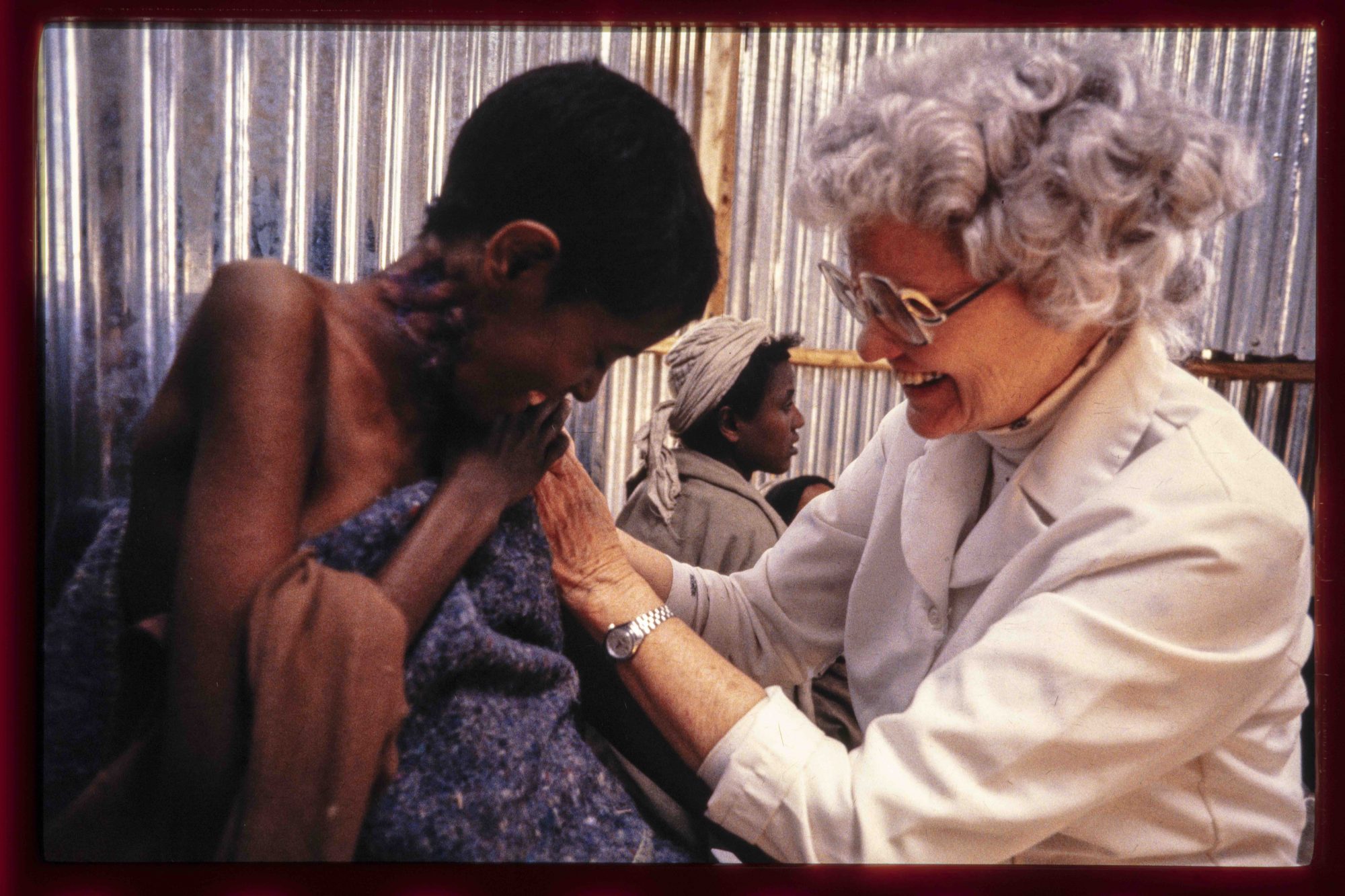The sight of sick, ragged, starving people overwhelms a newly arrived visitor to the hunger area of Ethiopia. It’s probably harder on people who see it daily.
Two Southern Baptist volunteer nurses from the United States, Mary Saunders, 62, and Sally Jones, 26, faced that sight daily during their four-month tour of duty in the isolated, 10,000-foot highlands around Rabel, Ethiopia.

Saunders earlier spent more than 22 years in Africa as a missionary nurse. Jones grew up in Kenya as the daughter of a missionary nurse. Yet neither had seen anything to match the Ethiopian scene.
Contact with people on the edge of death numbs the mind at first. Then it brings tears as you see mothers with starving babies and frail old people reach out with trembling hands to accept the first food they’ve had in days — or even weeks.
“I’ve lived in African villages and seen pockets of hunger, but not the vastness of the needs here,” Saunders said before leaving Ethiopia. “What I do here feels like a drop in the bucket. But I remember the Swahili proverb: ‘Drop by drop the bucket fills.’ So I keep on with my little drop.”
The two nurses cried a lot and they prayed a lot as their “little drops” saved lives.
Between the tears and prayers, they provided food and medicine to ease the famine of food, and the touch of love to solve a different kind of famine — a famine of love. That famine, which grows out of Ethiopians’ desperation and pain, equals or exceeds their famine of food.
Ethiopian children and adults hunger for more than food. They hunger for the human touch._
“Every time we appear, they want us to touch them. I’ve never been anywhere people want to be touched like here,” Saunders said after she and Jones arrived in Rabel to open Southern Baptists’ first feeding and health care center in Ethiopia’s Menz-Gishe district.
Workers in Rabel sometimes have to turn away from the scene to regain their composure. But as Saunders and Jones struggled to save dying babies, wash eyes crusted shut by disease and dirt and examine frail bodies, they usually didn’t want to turn away.
“I wept with a father who came to tell me his son died last night,” Saunders said before she left Rabel. “It was all I could do for him. Tears come more and more these days, but there’s joy in my heart because I’ve had the privilege of weeping with people who have such overwhelming needs.”
“The nurses have shown the absolute love of God,” marveled an Ethiopian relief worker. “It’s worked miracles in the lives of our people, even though the nurses can’t speak our language without an interpreter.”
Experience proves some of these people will survive because of the extra dimension of love when food and medicine alone wouldn’t have worked. Ethiopians who feel it flock to the nurses and others at the center, eager to touch their hands, look into their eyes, feel their embrace and learn why they love like they do.
It doesn’t take long for a visitor to sense that love in Rabel. It’s so real, without a word being said, you feel you can reach out and take it in your hand. The touch which transmits that love causes Ethiopians’ wilted lives to blossom before your eyes.
Arage, age 11, arrived in Rabel so skinny you could see his heart beating through his chest. Now he’s a healthy, happy child with more love to give than he received.
Moses, 22 months old, had withered to the point of death. The nurses fought to save his life with love, medicine and intravenous feeding through tubes in his nostrils.
Within a couple of weeks, Saunders removed the intravenous tubes and Moses began to eat. Then one day he rewarded her with a smile.
“I sat down with his mother and watched him, and we rejoiced together in a language all our own,” Saunders said.
“Sally and I asked the Father to use our eyes, our touch and our voices to make Him real,” Saunders said. “I really believe we’re laying some foundation stones for the day when the story — the wonderful story of God’s love — can be proclaimed boldly and openly here.”
That kind of love is changing lives in Ethiopia. Those who have seen it work in that painful place will never be the same again, and they will accept no substitute for it.
Originally published as “Drop by drop, love fills the bucket” by Robert O’Brien, The Commission, September 1985, p. 58-62.

